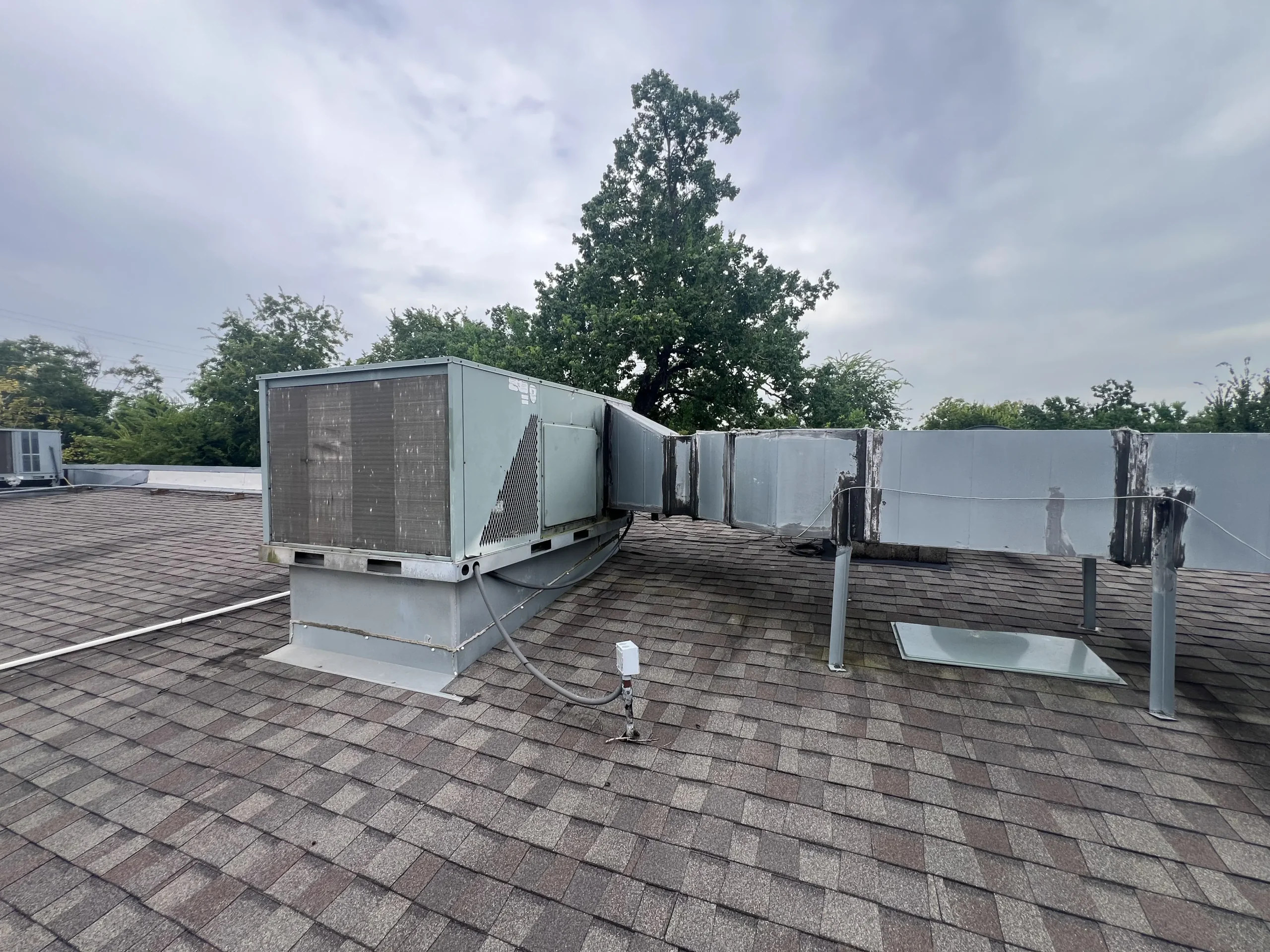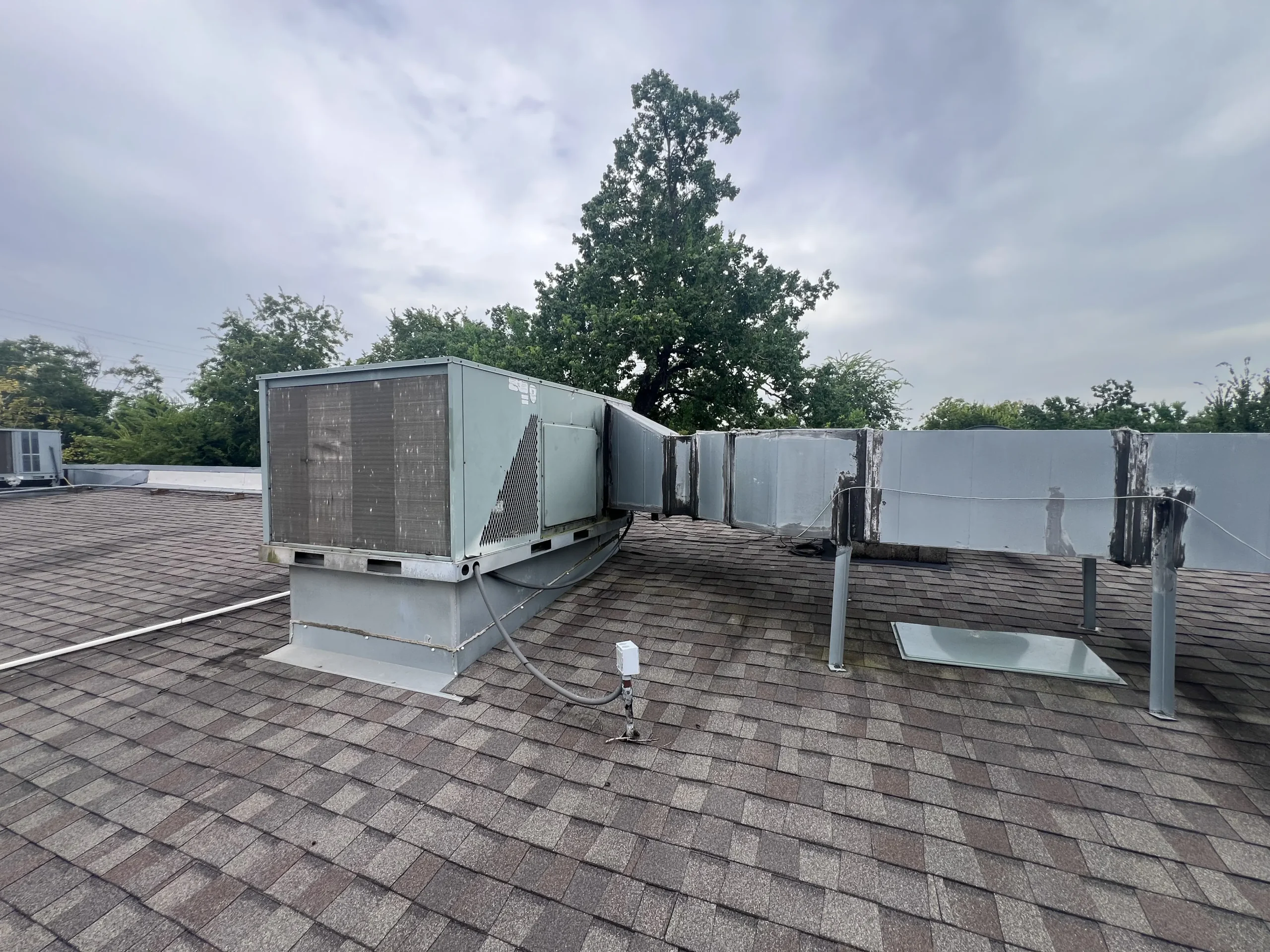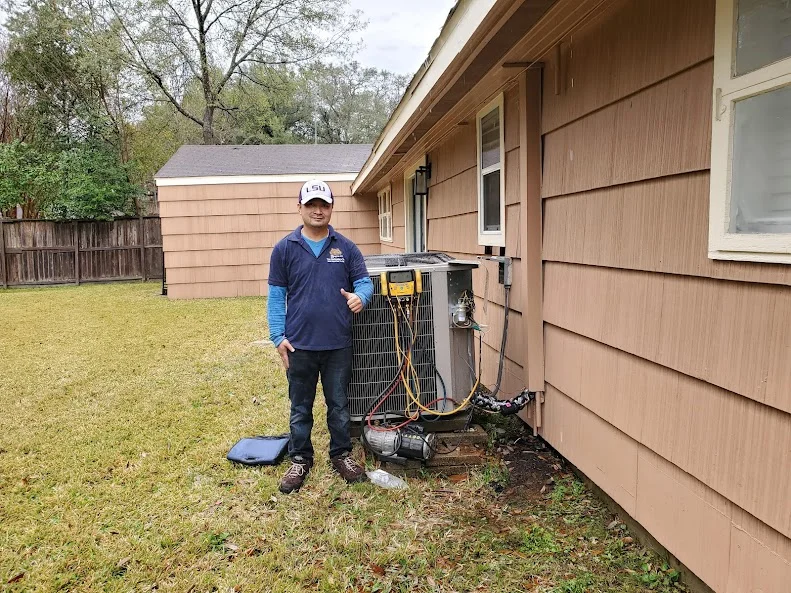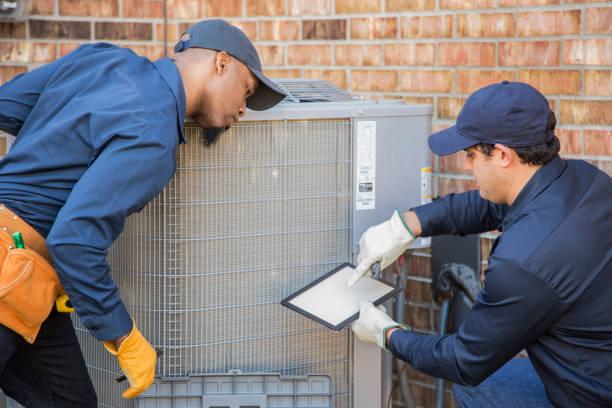When your HVAC system fails in the middle of a Texas summer or winter, finding a reliable repair service becomes an urgent priority. The Dallas-Fort Worth metroplex, with its extreme temperature swings and over 7.6 million residents, creates unique challenges for HVAC systems. Whether you’re dealing with a broken air conditioner during a 105-degree heatwave or a malfunctioning furnace when temperatures drop below freezing, choosing the right HVAC repair provider can mean the difference between a quick fix and a costly disaster.
This comprehensive guide breaks down everything you need to know about finding, vetting, and working with the best HVAC repair providers in the DFW area. We’ll cover the specific challenges facing North Texas homeowners, what separates exceptional service providers from mediocre ones, and practical steps to ensure you receive quality repairs at fair prices.

Why DFW HVAC Systems Face Unique Challenges
The Dallas-Fort Worth climate places exceptional demands on heating and cooling systems. Summer temperatures regularly exceed 100°F, while winter can bring sudden freezes and ice storms. This temperature volatility forces HVAC systems to work harder and longer than in more moderate climates.
According to the U.S. Energy Information Administration, Texas homes use approximately 18% more energy for cooling than the national average. This increased workload accelerates wear on compressors, fan motors, and electrical components. DFW homeowners typically run their AC units from April through Octobernearly seven months of continuous operation.
Common HVAC Issues in North Texas
Understanding the most frequent problems helps you recognize when professional HVAC repair becomes necessary:
- Refrigerant leaks: Extreme heat causes expansion and contraction in copper lines, leading to stress fractures and leaks
- Compressor failure: Extended runtime during brutal summers shortens compressor lifespan significantly
- Electrical component burnout: Power surges during summer storms damage capacitors, contactors, and control boards
- Duct system problems: Texas clay soil shifts foundations, causing ductwork separation and air leaks
- Thermostat malfunctions: Temperature extremes affect sensor accuracy and electronic component reliability
- Condensate drain clogs: High humidity levels create more condensation, increasing clog frequency
What Defines a Top-Tier HVAC Repair Provider
Not all HVAC companies deliver the same quality of service. The best providers in the DFW area share specific characteristics that set them apart from competitors who cut corners or overcharge for substandard work.
Proper Licensing and Certifications
In Texas, HVAC contractors must hold a valid license from the Texas Department of Licensing and Regulation (TDLR). This isn’t just a formalityit ensures technicians have passed competency exams and maintain continuing education requirements. Always verify that any company you consider holds current TDLR licensing and proper insurance coverage.
Additionally, look for technicians with NATE (North American Technician Excellence) certification. This industry-recognized credential demonstrates advanced knowledge and skill. Manufacturers like Carrier, Trane, and Lennox also offer factory training certifications that indicate specialized expertise with specific equipment brands.
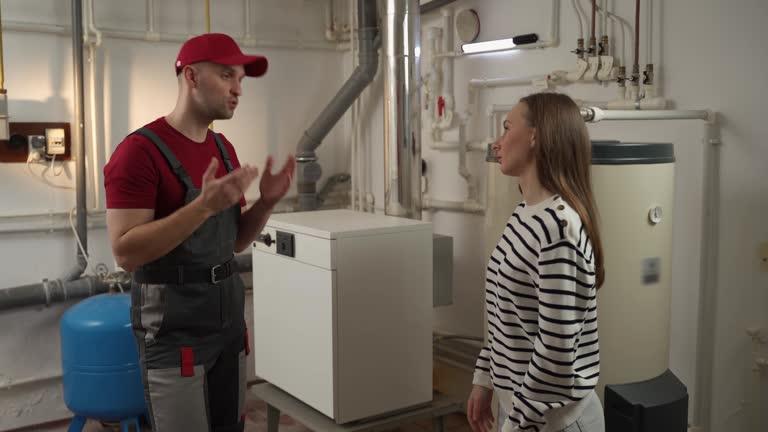
Transparent Pricing Without Hidden Fees
Reputable HVAC repair companies provide detailed written estimates before beginning work. This estimate should break down labor costs, parts prices, and any additional fees. Be wary of providers who refuse to give upfront pricing or who dramatically increase costs after “finding additional problems” once work has started.
According to HomeAdvisor data, the average HVAC repair in the DFW area costs between $150 and $600, depending on the issue’s complexity. Simple fixes like thermostat replacement might cost $150-$250, while compressor replacement can run $1,500-$2,500. Understanding typical price ranges helps you spot inflated quotes.
Response Time and Availability
The best HVAC companies understand that system failures don’t wait for convenient business hours. Top providers offer extended hours, weekend service, and true emergency response. However, distinguish between companies that genuinely staff emergency services versus those that simply list a phone number that routes to voicemail.
For non-emergency repairs, same-day or next-day service should be standard during busy seasons. If a company can’t schedule you within 48 hours during summer, they’re likely understaffed or poorly organized.
How to Research and Compare DFW HVAC Repair Companies
Thorough research before an emergency strikes saves time, money, and stress when your system fails. Follow these steps to build a shortlist of reliable providers.
Check Online Reviews and Ratings
Start with Google Reviews, Yelp, and the Better Business Bureau. Look for patterns in feedback rather than focusing on single reviews. Pay attention to how companies respond to negative reviewsprofessional, solution-oriented responses indicate good customer service practices.
Red flags include:
- Multiple complaints about price increases after work begins
- Reports of pushy sales tactics or unnecessary system replacement recommendations
- Failure to show up for scheduled appointments
- Unlicensed or inexperienced technicians performing work
- Poor communication or unreturned calls
Ask for References and Verify Experience
Don’t hesitate to request references from recent customers with similar repair needs. A confident company will gladly provide contact information for satisfied clients. Ask these references about pricing accuracy, technician professionalism, and whether the repair resolved the problem long-term.
Also inquire about the company’s experience with your specific HVAC brand and model. Some systems require specialized knowledge, particularly newer high-efficiency units or smart HVAC systems with advanced controls.
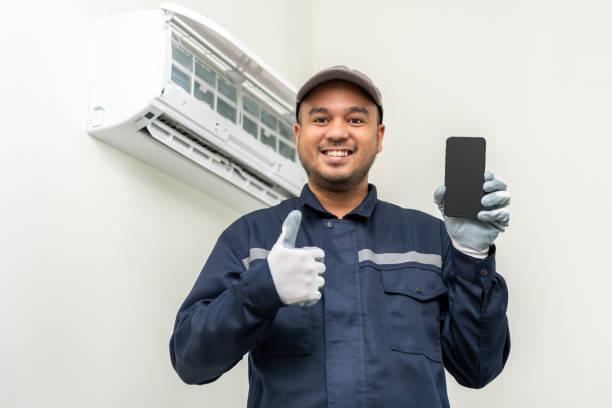
Verify Insurance and Warranty Coverage
Legitimate HVAC contractors carry both general liability insurance and workers’ compensation coverage. Request proof of insurance before allowing work on your property. This protects you if a technician is injured on your property or if work causes damage to your home.
Additionally, understand warranty terms. Quality providers stand behind their work with written warranties covering both labor and parts. Standard labor warranties range from 90 days to one year, while parts warranties follow manufacturer terms.
The Diagnostic Process: What to Expect
Understanding the proper diagnostic approach helps you evaluate whether a technician knows what they’re doing or is simply guessing and replacing parts until something works.
Comprehensive System Evaluation
A thorough HVAC diagnostic typically takes 45-90 minutes for a complete system. The technician should:
- Check thermostat operation and accuracy
- Inspect electrical connections and measure voltage
- Test capacitors and contactors with proper meters
- Measure refrigerant pressures and temperatures
- Examine indoor and outdoor coils for blockages or damage
- Verify proper airflow and duct integrity
- Test safety controls and limit switches
- Document findings with measurements and photos
Beware of technicians who spend 10 minutes looking at your system and immediately declare you need a new unit. This “sell-a-system” approach costs homeowners thousands unnecessarily. Many HVAC systems can be repaired cost-effectively with proper diagnosis.
Understanding Repair vs. Replacement Recommendations
Sometimes replacement makes more financial sense than repair, but the decision should be based on objective criteria, not arbitrary recommendations. Industry experts suggest using the “5000 Rule”: multiply the repair cost by the system’s age in years. If the result exceeds $5,000, replacement is typically more economical.
For example, a $400 repair on a 10-year-old system equals 4,000repair makes sense. A $800 repair on a 15-year-old system equals 12,000replacement should be considered, especially if efficiency improvements would lower operating costs.
Comparing Top HVAC Services: What Sets the Best Apart
| Service Feature | Top-Tier Provider | Average Provider | Below-Average Provider |
|---|---|---|---|
| Response Time | Same day or 24-hour emergency | 1-3 days | 3+ days or unreliable |
| Pricing Transparency | Detailed written estimate upfront | Rough verbal estimate | No estimate until after diagnosis |
| Technician Training | NATE certified, ongoing education | Licensed but limited training | Minimal or expired licensing |
| Warranty Coverage | 1+ year labor, full parts warranty | 90-day labor, limited parts | No warranty or 30 days only |
| Diagnostic Approach | Comprehensive testing with documentation | Basic inspection | Quick look, immediate replacement push |
| Customer Communication | Detailed explanations, photo documentation | Basic explanation of problem | Minimal information provided |
Questions to Ask Before Hiring an HVAC Repair Company
Before committing to a repair provider, ask these critical questions to ensure you’re making an informed decision:
About Pricing and Payment
- What is your diagnostic fee, and does it apply toward repair costs?
- Do you provide written estimates before beginning work?
- Are there additional fees for after-hours or emergency service?
- What payment methods do you accept?
- Do you offer financing options for expensive repairs?
About Experience and Qualifications
- How long has your company been serving the DFW area?
- Are your technicians NATE certified and factory trained?
- Can you provide references from recent customers?
- Do you have experience with my specific HVAC brand and model?
About Service and Warranties
- What warranty do you provide on repairs?
- How quickly can you schedule service?
- Do you guarantee your work if the problem persists?
- What happens if the same issue recurs within the warranty period?
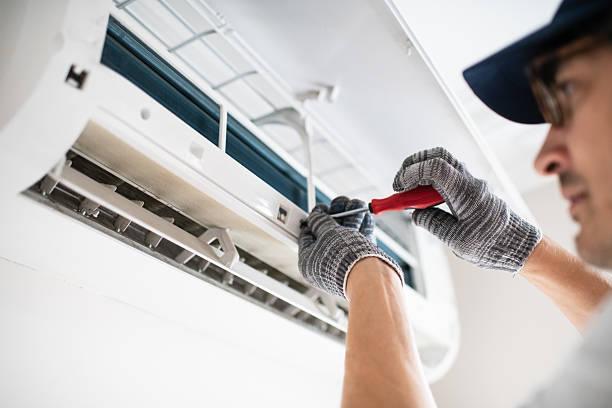
Preventive Maintenance: The Best Investment for DFW Homeowners
While finding excellent repair services is crucial, the best strategy involves preventing problems before they require emergency fixes. Regular HVAC maintenance extends system life, improves efficiency, and reduces breakdown frequency.
What Maintenance Includes
Professional maintenance visits typically include:
- Cleaning or replacing air filters
- Cleaning condenser and evaporator coils
- Checking and tightening electrical connections
- Lubricating moving parts
- Testing and calibrating thermostat
- Inspecting ductwork for leaks
- Checking refrigerant levels and pressures
- Testing safety controls and capacitors
- Clearing condensate drains
Most HVAC manufacturers require annual professional maintenance to keep warranties valid. Skipping maintenance can void coverage, leaving you responsible for expensive repairs that would otherwise be covered.
Maintenance Plan Benefits
Many top DFW HVAC companies offer maintenance plans that provide semi-annual tune-ups plus additional benefits like priority scheduling, repair discounts, and waived diagnostic fees. These plans typically cost $150-$300 annuallyfar less than a single emergency repair.
According to the Department of Energy, properly maintained HVAC systems operate 15-20% more efficiently than neglected units. For the average DFW household spending $1,800 annually on cooling and heating, this translates to $270-$360 in annual savings.
Red Flags to Watch For During Service Calls
Even after hiring a seemingly reputable company, stay alert for warning signs during the actual service visit that indicate problems with the provider or technician.
Immediate Red Flags
- No identification or proper uniform: Professional technicians carry company ID and wear branded uniforms
- Unmarked or personal vehicle: Legitimate companies use clearly marked service vehicles with company information
- Pressure to replace instead of repair: Pushy sales tactics without objective justification signal profit-focused rather than customer-focused service
- Unable to explain the problem clearly: Competent technicians can explain issues in understandable terms without jargon overload
- Refusing to provide written estimates: This makes it impossible to compare prices or hold the company accountable
- Requiring full payment upfront: Standard practice involves payment after satisfactory completion or a reasonable deposit for large jobs
Understanding Houston-Based Excellence: What Quality Looks Like
While our focus is on DFW providers, it’s valuable to understand what exceptional HVAC service looks like. Companies like 75 Degree AC, which serves the Houston area, exemplify the standards you should expect from any top-tier provider.
Established in 2016 with additional prior experience, quality-focused companies build their reputation on transparency, technical expertise, and genuine customer care. They provide detailed upfront quotes with no hidden fees, employ licensed technicians skilled in diagnosing all system types, and maintain flexible scheduling to accommodate urgent needs.
When evaluating DFW providers, look for these same hallmarks: local ownership and operation, commitment to clear pricing, investment in technician training and certification, and a track record of customer satisfaction spanning multiple years.
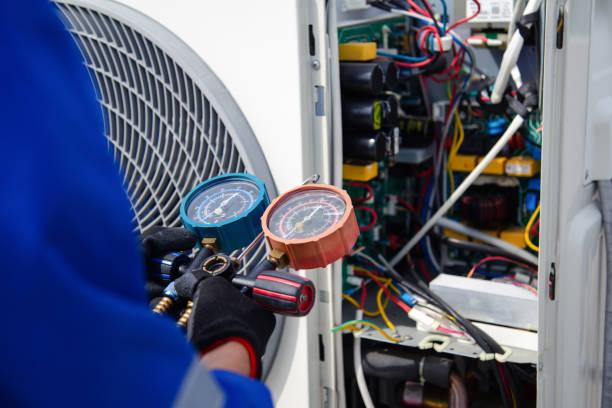
Emergency vs. Non-Emergency: When to Call Immediately
Understanding the difference between true HVAC emergencies and issues that can wait until normal business hours helps you avoid unnecessary after-hours fees while ensuring critical problems receive immediate attention.
True HVAC Emergencies
- Complete heating failure when temperatures drop below freezing (risk of frozen pipes)
- Gas smell near furnace or indoor unit (potential gas leakalso call your gas company)
- Burning smell or visible smoke from HVAC components
- Loud banging, grinding, or screeching sounds indicating imminent mechanical failure
- Water leaking profusely from indoor unit (risk of water damage)
- Electrical burning smell or sparks from HVAC components
Issues That Can Wait
- AC not cooling well but still producing some cool air
- Heating system not reaching desired temperature but providing some heat
- Unusual but not alarming noises
- Minor water dripping from condensate drain
- Thermostat not communicating properly with system
For non-emergency issues, scheduling next-day service during regular hours typically costs 20-40% less than after-hours emergency calls while still resolving the problem quickly.
Seasonal Considerations for DFW HVAC Repairs
The timing of your HVAC service can significantly impact availability, pricing, and scheduling flexibility.
Peak Season (May-September)
Summer represents the busiest period for DFW HVAC companies. Demand surges, response times lengthen, and prices may increase. Book preventive maintenance in early spring (March-April) to beat the rush and catch problems before temperatures soar.
Shoulder Season (March-April, October-November)
These transition periods offer ideal timing for non-urgent repairs and system maintenance. Companies have better availability, can often schedule same-day service, and may offer off-peak discounts.
Off-Peak Season (December-February)
Winter months see reduced HVAC demand (except during cold snaps). This creates opportunities for negotiated pricing on repairs and installations, though some companies reduce staffing during this period.
Financing Options for Major Repairs
When facing expensive repairs, understanding your payment options helps you make financially sound decisions without compromising on necessary work.
Many reputable HVAC companies partner with financing providers offering:
- 0% interest for 6-24 months (for qualified buyers)
- Extended payment plans up to 60 months
- Same-day approval decisions
- No prepayment penalties
Before committing to HVAC financing, compare rates with personal loans, credit cards, or home equity lines of credit. Sometimes alternative financing offers better terms than company-provided options.
The Role of Technology in Modern HVAC Repair
Advanced HVAC companies leverage technology to improve diagnostic accuracy, customer communication, and service efficiency.
Diagnostic Tools
Top providers use sophisticated equipment including thermal imaging cameras to detect insulation problems and airflow issues, refrigerant analyzers for precise charge measurements, and digital multimeters for electrical testing. These tools enable accurate diagnosis rather than guesswork-based repairs.
Customer Communication
Quality companies utilize photo and video documentation during inspections, allowing customers to see problems firsthand. Text message updates keep homeowners informed about technician arrival times and service progress. Online portals provide access to service history, maintenance schedules, and invoices.
Building a Long-Term Relationship with Your HVAC Provider
Rather than scrambling to find help during each crisis, establishing an ongoing relationship with a trusted HVAC company provides multiple benefits:
- Familiarity with your system’s history and previous repairs
- Priority scheduling during peak demand periods
- Continuity in technician assignments (same tech who knows your system)
- Potential loyalty discounts on repairs and maintenance
- Faster diagnosis due to documented service history
Many homeowners find that investing in a maintenance agreement with a single provider creates this relationship while ensuring regular system care. The provider becomes invested in your system’s longevity since repeated breakdowns reflect poorly on their maintenance work.
Frequently Asked Questions About DFW HVAC Repair
How much should I expect to pay for HVAC repair in Dallas-Fort Worth?
Average HVAC repairs in the DFW area range from $150 for simple fixes like thermostat replacement to $2,500 for major component repairs like compressor replacement. Diagnostic fees typically cost $75-$150, though many companies apply this toward repair costs. Always request detailed written estimates before approving work.
How can I tell if I need repair or replacement?
Use the 5000 Rule: multiply repair cost by system age in years. If the result exceeds $5,000, replacement typically makes more financial sense. Also consider efficiencyif your system is over 10 years old and requires expensive repairs, investing in a new high-efficiency unit may provide long-term savings through reduced energy costs.
What qualifications should I look for in an HVAC technician?
At minimum, verify that technicians hold valid TDLR licensing in Texas. NATE certification demonstrates advanced technical knowledge, while manufacturer-specific certifications indicate specialized training. Ask about years of experience and whether the company carries proper insurance coverage.
How quickly should I expect service during summer?
Reputable companies typically provide same-day or next-day service during peak summer months, with true emergency response available 24/7. If a company can’t schedule you within 48 hours during summer without a documented emergency backlog, consider alternative providers.
Are maintenance plans worth the cost?
Yes, for most homeowners. Maintenance plans typically cost $150-$300 annually but include semi-annual tune-ups worth $150-$200 each, plus benefits like repair discounts and priority scheduling. Proper maintenance extends system life by 5-10 years and improves efficiency by 15-20%, providing substantial long-term savings.
What should I do if I’m unhappy with repair work?
First, contact the company directly to discuss your concerns. Reputable providers will work to resolve issues and stand behind their work. If the company is unresponsive, file a complaint with the Better Business Bureau and the Texas Department of Licensing and Regulation. Review your contract for warranty terms and consider disputing charges if work wasn’t completed as agreed.
How can I prevent HVAC emergencies?
Schedule professional maintenance twice annuallyspring before cooling season and fall before heating season. Change air filters monthly during heavy-use periods. Keep outdoor units clear of debris and vegetation. Address small problems promptly before they escalate into major failures. Consider installing a smart thermostat that can alert you to system problems.
What’s the difference between a tune-up and a diagnostic visit?
A tune-up is preventive maintenance performed on a functioning system, including cleaning, adjustments, and minor repairs to optimize performance. A diagnostic visit occurs when your system has a problemthe technician identifies the issue and provides a repair estimate. Some companies waive diagnostic fees if you proceed with repairs or are a maintenance plan member.
Conclusion: Making the Right Choice for Your Home
Finding the best HVAC repair provider in the Dallas-Fort Worth area requires careful research, but the investment of time pays dividends through years of reliable service and fewer headaches. Remember these key takeaways:
- Verify licensing, insurance, and certifications before hiring any HVAC company
- Seek transparent pricing with detailed written estimates
- Check multiple review sources and ask for customer references
- Understand the difference between true emergencies and issues that can wait
- Invest in preventive maintenance to avoid costly breakdowns
- Build long-term relationships with trusted providers for better service
- Use the diagnostic process to evaluate technician competence
- Watch for red flags that indicate substandard service or dishonest practices
Whether you need immediate air conditioning repair, are planning a new AC installation, or want to establish a preventive maintenance schedule, the right HVAC partner makes all the difference. Don’t wait until your system fails during extreme weatheridentify reliable providers now and establish relationships that will serve you well for years to come.
The best HVAC repair isn’t just about fixing broken equipmentit’s about partnering with professionals who respect your home, value your time, and prioritize your comfort and budget. Take control of your HVAC needs by applying the insights from this guide to find providers worthy of your trust and business.
Need Expert HVAC Service?
If you’re in the Houston area, 75 Degree AC provides the reliable, professional HVAC service you deserve. Our licensed technicians offer transparent pricing, comprehensive diagnostics, and quality repairs backed by solid warranties.
Call us today at (713) 598-2737 or visit our website at 75degreeac.com to schedule service or learn more about our maintenance plans.

